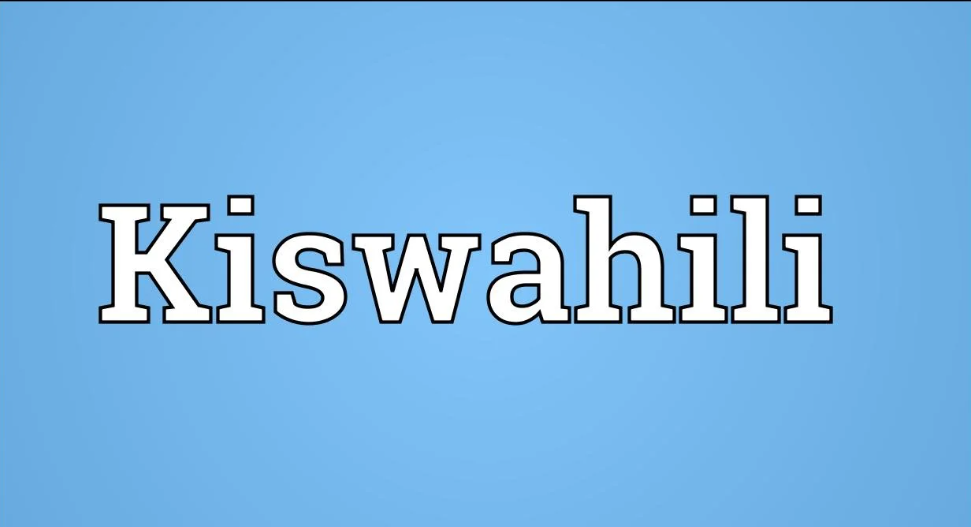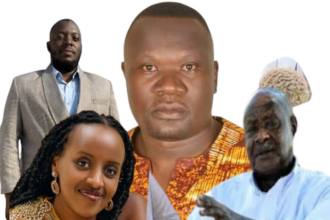The decision by the Republic of Uganda to adopt Kiswahili as an official language was something which should not have happened.
In July 2022, the Cabinet declared Kiswahili an official language, ending English’s monopoly which it has enjoyed for decades, echoing the directive by the first East African summit held in February 2021 on implementation of Kiswahili as an official language in the regional bloc.
It should be noted that Uganda’s history with Kiswahili is a fraught one. When European Catholic and Protestant explorers arrived in the country in the late 1870’s Swahili was adopted as a mode of communication in courts and civil administration.
Its declaration as an official language in 1928 in Buganda met stiff resistance from the natives who demanded that Luganda be reinstated.
The adoption of Kiswahili and the subsequent declaration that it is compulsory in primary and secondary schools by the Ugandan cabinet has sparked wide spread criticisms and debates among nationals, and based on many reasons, such a decision should not have been passed.
Uganda has not taken important strides in the development and implementation of Kiswahili learning technology, to make it easy for comprehension by learners, who find the subject new and too much complicated.
According to a publication by Viera Pavlikova in 1996, titled “Swahili and the Dilema of Uganda Language Policy”, this landlocked nation lacks a comprehensive system of language development.
The current learning process in Uganda allows for the translation of words from major international languages like English to Kiswahili and vice-versa, rather than from local languages to Swahili.
It has to be understood that learners have a lot of problems with comprehension of international languages like English, and therefore translating from English to Kiswahili which is also foreign makes no sense and complicates learning.
Besides, a sizable number of the country’s citizens contend that Kiswahili represents a broader form of discrimination against other languages in the country which is a threat to their existence.
For instance the policy largely complicates learners efforts to effectively understand their studies, most especially in the countryside where people’s knowledge about Kiswahili is extremely low.
Uganda has many indigenous languages which are widely spoken and understood very well by the natives. Against this background, the promotion of Kiswahili should at least be done alongside efforts to promote other local languages to make learners’ comprehension of their studies easier.
However, the reverse is true and there has been little or no efforts to promote local languages and instead Kiswahili has been emphasized, yet Uganda has over 41 local languages.
For a country to develop, it must put its culture first, including native languages. Against this background, there is an urguement that Luganda should have been made an official language, instead of Kiswahili which is foreign, to promote the love for local cultures which is so pivotal in national development.
Dr. M. B. Nsimbi while teaching at Tabora school in Tanganyika in the 1930’s noted that Kiswahili should be taught and promoted at the same level with mother languages to avoid loss of identity and cultural disorientation.
Note should be taken that Luganda is the most widely spoken language in the country and it has spread to different parts, most especially urban centers, used as a mode of communication in both trade and transport.
Luganda is also regarded as the first African language to document the country’s historical roots through translations in the Bible and catechism literature. Recent studies have also suggested that parents prefer their children being taught in Luganda because it represents a reflection to urban life.
However due to political reasons, Luganda has been turned down by authorities in terms of making it an official language and Kiswahili which is foreign has been adopted.
Besides, Kiswahili language in Uganda is reminiscent of the nation’s violent past. It reminds citizens of the dark days of historical dictators in the country, chiefly Idi Amin Dada.
This was because during his regime, this language was widely spoken and it became a symbol of military oppression, the fact that it was the dominant language among soldiers who were very repressive, undisciplined and violent.
It was viewed as a language of command, as opposed to the language of social interaction.
Thus the designation of this language as an official one and the eventual making it a compulsory subject in primary and secondary schools does not mean that it will make Ugandans reconcile with their turbulent past without mechanisms to do so.
In the final analysis, there should be effective mechanisms to comprehensively promote local languages in addition to mechanisms to translate Kiswahili into local dialects understood by Ugandan natives to ease learning, before it is made compulsory in primary and secondary schools, an also an official language at the expense of other local languages.
The author is a finalist student of Journalism at Makerere University
Do you have a story in your community or an opinion to share with us: Email us at Submit an Article









